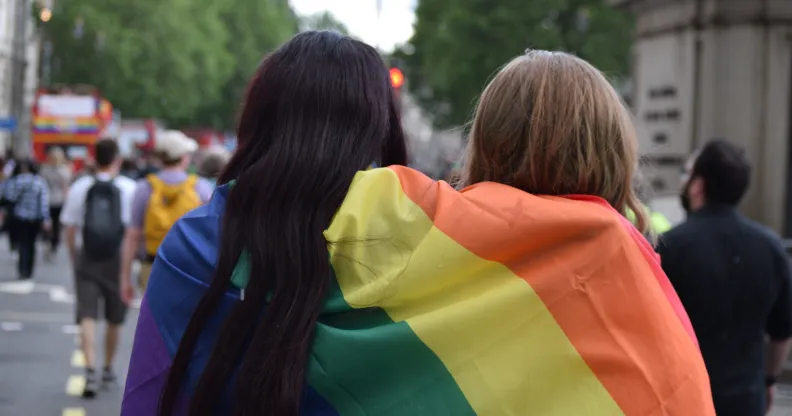These touching, honest and hopeful letters from queer people to their younger selves are a must-read

Stock image (Envato Elements)
Throughout Pride month, sex-positive toy brand LELO asked LGBT+ folk to share their ‘Dear Younger Queer Self’ letters.
With the pandemic temporarily putting paid to physical meet-ups, LELO wanted to help the community come together in a different way – by sharing past experiences, lessons learned and journeys that are still continuing to this day.
Three winning letters were whittled down from hundreds of entries, each chosen for their authenticity, courage and conviction.
From a queer woman rejecting society’s labels, to a proud trans man addressing the “dear little lost boy” he once was, their stories remind us that happiness can be found when you’re able to live as your authentic queer self.
‘F**k the box.’
Jessica Fesler is a 36-year-old queer woman “attracted to beautiful, interesting people who work to improve themselves and the collective” regardless of their “physical wrapping”. Her message to her younger self is simple: “F**k the box.”
“F**k the labels and the dogmas and the -isms that goes with them,” she writes.
Whether gay, straight, vegan, blonde or blue, there’s no point in trying to fit into narrow descriptions and expectations, Fesler says, rejecting society’s labels wholeheartedly.
“When someone tries to label you, you have a choice,” she writes. “You can accept this or not. But it is a choice, not an obligation. Your job is not to reinforce the beliefs of others. But to forge your own path.”
“You will change,” she adds. “Sometimes seemingly, everyday. And that is OK. You are not perfect, there is no such thing. This idea creates fear and paralyses our dreams and our hands.
“You are messy. Embrace this.”
‘Your chest will feel like the whirring engine of a Boeing 737.’
Quinton Jordebrek, a 28-year-old gay trans man, paints a striking picture for his younger self through the lense of adult wisdom.
He warns of an adolescence spent coming up against transphobia and seeking validation through sex with older, sometimes abusive men.
“The first boy you take to your parent’s basement will be the first guy you go down on, and afterwards he won’t call or text you, until he does, and your chest will feel like the whirring engine of a Boeing 737,” he writes.
Jordebrek’s story is one that will be immediately familiar to many queer and trans people: one of a family that sweeps its issues under the carpet, meeting truth with silence.
“Their silence will feel like treading water, and you’ll need to remember everything you learned in swimming lessons, keep moving. Go to work, clean your house, walk the dog, put the garbage out,” he continues.
“On the night after your therapist drills it into you that your over-sized breasts do not define your gender and you stand naked in front of the mirror for the first time in over three years, remember that boys cry too.”
‘Dear little lost boy.’
LostBoy knew at three years old that his body was “not what they say it is”. At five, when he would “hiss and spit at the dresses and tights [his] mother wanted to put [him] in,” he knew exactly why.
“Dear little lost boy,” he writes. “Dear still lost boy, you already know a lot. So let me tell you what I know, now.”
At 26, LostBoy is still on a journey towards living his truth. And as he approaches this momentous moment, he wants his younger self to know “our body does not invalidate our spirit”.
“Reject white colonialist viewpoints of gender and passing,” he writes.
“We — we owe everything to black trans womxn. Our whole life. The ability to come out now. To exist. … Listen to them.”
His voice is one that has been radicalised by heartbreak and trauma, but one that continues to see the best in people as he seeks out his community — which he knows he will find, soon.

